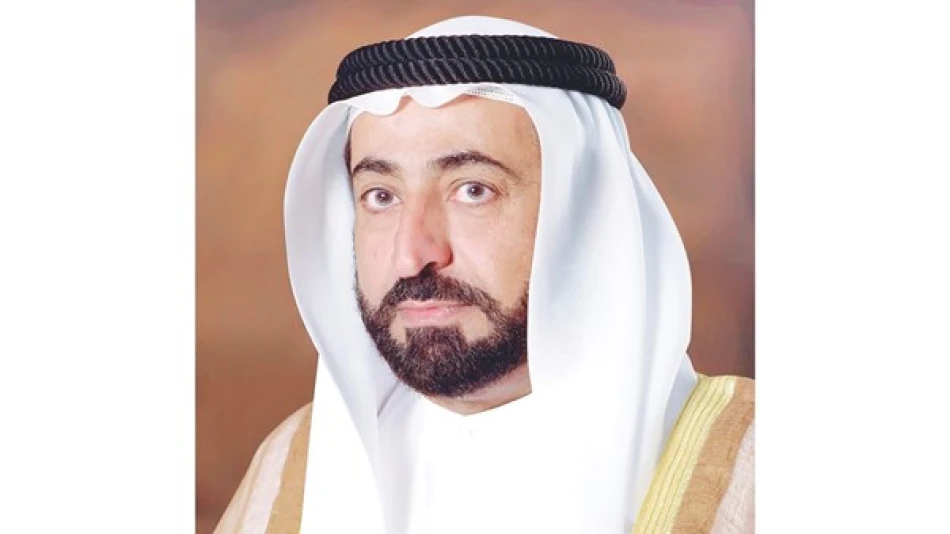
Sharjah Ruler Approves Hiring 700 and Promoting 1,523 Personnel for Enhanced Public Services
Sharjah's Bold Employment Push: 700 New Hires Signal UAE's Growing Public Sector Investment
Sharjah's ruler has approved a sweeping employment initiative that will create 700 new government jobs while promoting over 1,500 existing employees, marking one of the emirate's largest public sector expansions in recent years. The move reflects the UAE's broader strategy to absorb local talent and reduce unemployment among citizens, particularly recent graduates struggling to enter the job market.
Massive Job Creation Targets First-Time Workers
Sheikh Dr. Sultan bin Muhammad Al Qasimi, Ruler of Sharjah, has authorized the hiring of 700 job seekers through the remainder of 2025 across various government entities and institutions. The positions specifically target participants in Sharjah's qualification and training program who have never held employment before—a deliberate focus on breaking the cycle of youth unemployment that has challenged Gulf economies despite their wealth.
This hiring wave represents more than typical government recruitment. By prioritizing first-time job seekers, Sharjah is addressing a critical gap where fresh graduates often struggle against employers' preference for experienced candidates. The emirate's approach mirrors successful employment schemes in Singapore and South Korea, where governments actively bridge the experience gap for new workforce entrants.
Academic Achievement Gets Financial Recognition
The initiative also includes salary adjustments for 254 government employees who have earned new academic qualifications, with a total cost of AED 8.4 million. These adjustments will be backdated to when employees obtained their degrees, creating a strong incentive for continuous learning within the public sector.
This policy sends a clear message about the value of education and professional development. Unlike many organizations that expect employees to pursue further education at their own expense and time, Sharjah is financially rewarding those who invest in upgrading their skills—a practice that could set new standards across the UAE's government sector.
Promotions Signal Retention Strategy
The broader promotion scheme affects 1,523 government employees at a cost of AED 22 million, including job-level promotions for 1,222 staff members, salary increases for 264 employees, and exceptional financial promotions for 37 individuals.
This comprehensive approach to career advancement suggests Sharjah is competing aggressively for talent retention. With the UAE's private sector increasingly attractive due to flexible work arrangements and competitive packages, government entities must offer clear advancement paths to retain skilled workers.
Economic Implications and Regional Context
The timing of this announcement is significant. As oil prices fluctuate and the UAE accelerates economic diversification, government employment serves as both an economic stabilizer and a tool for developing human capital. The total investment of over AED 30 million in salaries and promotions represents substantial purchasing power injection into Sharjah's economy.
Compared to neighboring emirates, Sharjah's approach appears more systematically focused on employment creation. While Dubai emphasizes private sector growth and Abu Dhabi balances oil revenues with diversification, Sharjah is leveraging government employment as a primary tool for economic development and social stability.
Long-term Strategic Vision
This employment expansion likely reflects Sharjah's positioning as the UAE's cultural and educational hub. By creating government jobs for qualified candidates and rewarding continuous learning, the emirate is building institutional capacity that supports its museums, universities, and cultural initiatives.
The focus on first-time employment also addresses a demographic challenge facing the entire Gulf region: ensuring that education investments translate into productive careers for young citizens. Success in Sharjah could provide a model for other emirates grappling with similar workforce development challenges.
Most Viewed News

 Layla Al Mansoori
Layla Al Mansoori






